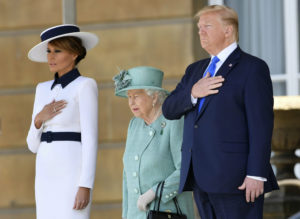What on Earth Is Boxing Day?
Ever wonder why many of our British cousins open gifts on the 26th of December? The answer may be more elusive than you expect. Boxing Day has more to do with blue bloods and capitalism than the fistfighting sport. Shutterstock
Boxing Day has more to do with blue bloods and capitalism than the fistfighting sport. Shutterstock
Ever wonder why many of our British cousins open gifts on the 26th of December? The answer may be more elusive than you expect.
According to The New York Times, which recently printed a sausage roll recipe for the British holiday:
In Britain…Boxing Day….celebrates the traditional post-Christmas servants’ day off. On Boxing Day, upper-class families were forced to fend for themselves and subsist on leftovers. It was also the day workers received their presents. Nowadays, it is a bonus secular holiday, but it is still dedicated to the leisurely consumption of leftovers.
And yet, a piece in Time magazine, ambitiously titled “Everything You Need to Know About Boxing Day,” explains that although Boxing Day may very well date back to the aforementioned tradition, its origins are a bit nebulous, overall.
The best clue to Boxing Day’s origins can be found in the song “Good King Wenceslas.” According to the Christmas carol, Wenceslas, who was Duke of Bohemia in the early 10th century, was surveying his land on St. Stephen’s Day — Dec. 26 — when he saw a poor man gathering wood in the middle of a snowstorm. Moved, the King gathered up surplus food and wine and carried them through the blizzard to the peasant’s door. The alms-giving tradition has always been closely associated with the Christmas season — hence the canned-food drives and Salvation Army Santas that pepper our neighborhoods during the winter — but King Wenceslas’ good deed came the day after Christmas, when the English poor received most of their charity.
King Wenceslas didn’t start Boxing Day, but the Church of England might have. During Advent, Anglican parishes displayed a box into which churchgoers put their monetary donations. On the day after Christmas, the boxes were broken open and their contents distributed among the poor, thus giving rise to the term Boxing Day. Maybe.
But wait: there’s another possible story about the holiday’s origin. The day after Christmas was also the traditional day on which the aristocracy distributed presents (boxes) to servants and employees — a sort of institutionalized Christmas-bonus party. The servants returned home, opened their boxes and had a second Christmas on what became known as Boxing Day.
So which version is correct? Well, both. Or neither. No one, it seems, is really sure.
Whatever the origin of the holiday, both stories presented above seem to perpetuate the idea of aristocratic benevolence at a time when royal families are increasingly becoming an irrelevant relic of a despotic past. Or it could just be another way to persuade people to empty their pockets in the name of consumerism. Take your pick.
—Posted by Natasha Hakimi Zapata
Your support matters…Independent journalism is under threat and overshadowed by heavily funded mainstream media.
You can help level the playing field. Become a member.
Your tax-deductible contribution keeps us digging beneath the headlines to give you thought-provoking, investigative reporting and analysis that unearths what's really happening- without compromise.
Give today to support our courageous, independent journalists.





You need to be a supporter to comment.
There are currently no responses to this article.
Be the first to respond.